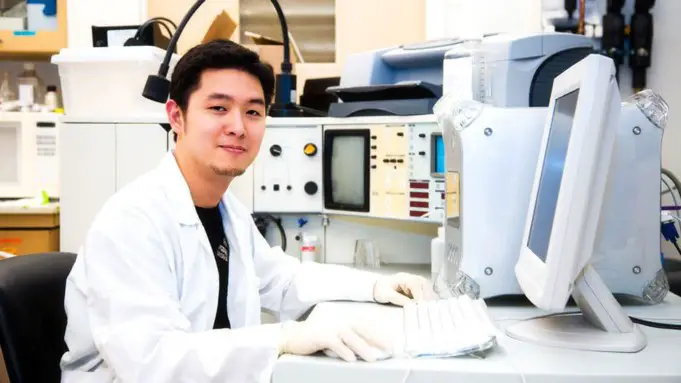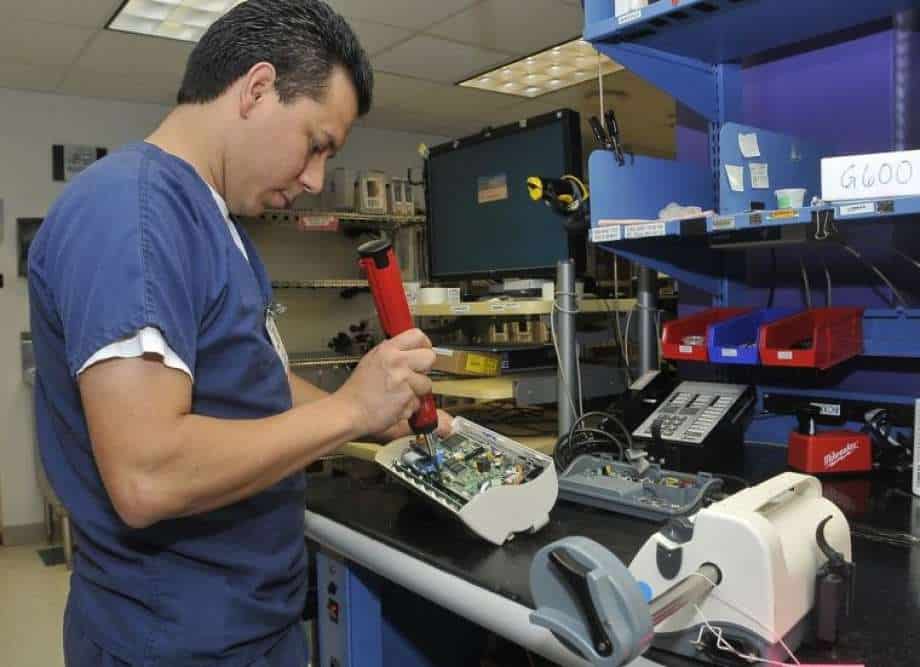Biomedical technicians play a major role in successful patient outcomes in healthcare by designing, calibrating, repairing and inspecting medical equipment that is growing more vital and advanced all the time.
Also known as biomedical equipment technicians, biomedical engineers, and “biomeds,” these experts have operated diligently for many decades in the area of medicine where science fiction becomes fact and the present meets the future. Their profession continually proves to be one of the most exciting and dynamic fields in health care. Their impact is very profound.
Biomeds ensure the proper functioning and safety of medical equipment, from surgical robots and nuclear imaging devices to electric wheelchairs, that healthcare professionals and patients rely on to achieve accurate and safe diagnosis and successful treatments.
Biomeds use their expertise to prevent computer and mechanical errors that may lead providers to incorrect diagnosis or harm the patients. They also create preventative maintenance programs that keep the equipment operating and avoid life-threatening breakdowns.
A lot of facilities consult biomeds when they are planning for the future and choosing new machines. These technicians will train the professionals how to use the equipment both effectively and safely. Hospitals rely on biomeds in order to meet the federal, state and local regulations that govern the use of medical equipment.
Some biomeds are generalists and work with many different machines, while others will specialize in a specific area such as laboratory devices or imaging.
Work Environment
Biomeds work within many different environments. Many of them are employed by health systems or hospitals. Others will work in the supply industry at wholesalers or retail centers for medical equipment.
According to a study from 2010, nearly 13% of biomeds were self-employed. However, most biomeds are full time employees. Those employed by retail and wholesale suppliers will usually work regular business hours and may be on call weekends and nights. In hospitals, biomeds often work overnight or evening shifts.
Biomeds spend a lot of their time working with machines hands-on. To repair and adjust equipment, they use both computer applications and tools. When performing their work, they will stand for many hours and frequently crouch and bend. They also perform certain office duties like record keeping and reviewing product manuals.
The job of a biomed requires a lot of interaction with other individuals. Biomeds will spend a great amount of their time training others and meeting with hospital administrators. They may also work alongside the hospital facilities department, the medical materials personnel, and nurses. Since they service the equipment that is being used, they have a lot of contact with patients as well.
Education
A biomedical engineering career requires that you have a two year associate’s degree in BMET or a related field like engineering or electronics. Many biomeds will train while they are serving in the armed forces. While employers will generally value hands-on experience over advanced education, there are many companies that now require you to have a bachelor’s degree.
When you are enrolling in a BMET program, it is important to choose a school that has been accredited by the American Board for Technology and Engineering. These types of programs have demonstrated a quality commitment and have a great track record of preparing their students for success.
Since technology quickly advances, biomeds are usually required to update skills regularly with further education.
Training
Biomed training programs that are accredited provide extensive hands-on instruction. Students will eventually gain independence by training with many machines, each being a little more complex than the previous. Working biomeds will generally extend their training by attending continuing education programs and studying equipment manuals.
Certification or Licensing
Voluntary certification may pave the path for greater advancement opportunities and employment. Some biomeds also pursue certification in a specific niche. In order to get these credentials, candidates will need to meet the requirements of work experience and education and pass a computer-based exam.
While this is not mandatory, membership in professional associations will connect biomeds with networking opportunities that may allow them to advance in their career. If you are interested in pursuing this career or a career in electronic calibration, then you need to understand this information.













